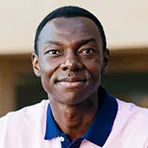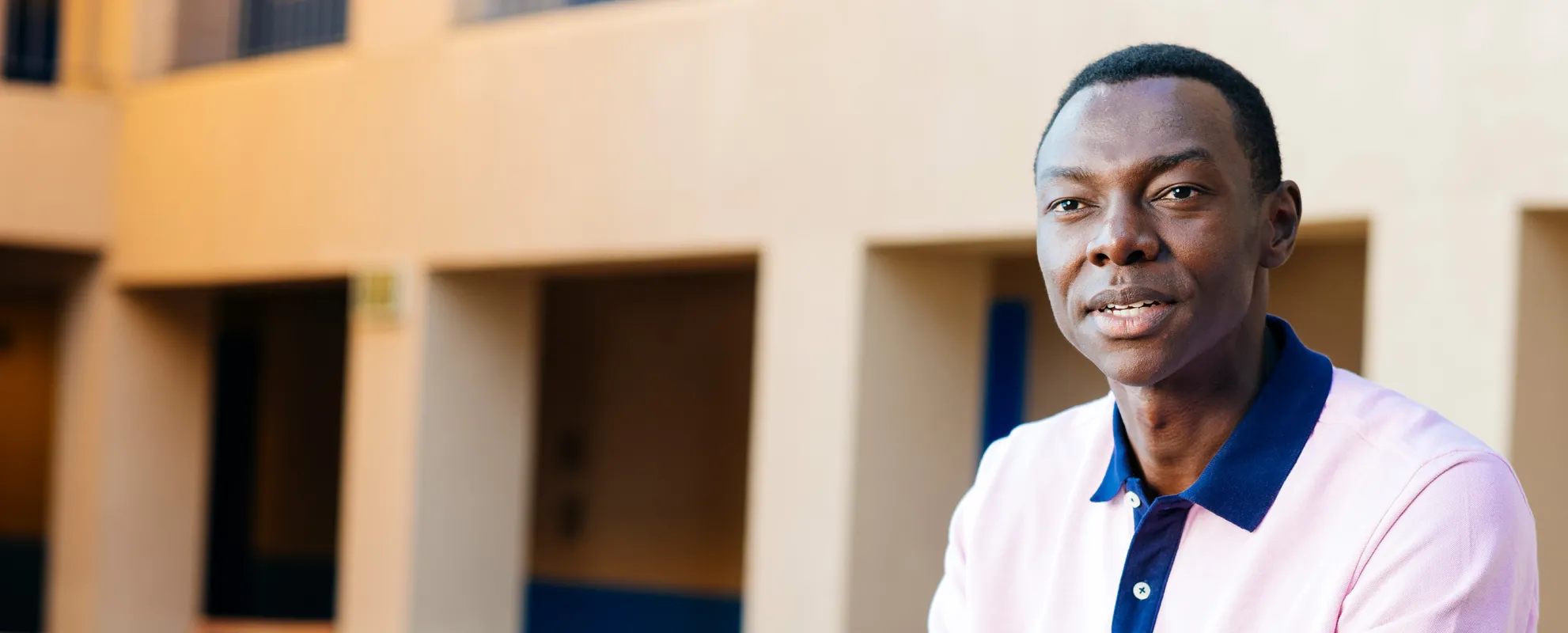Ndirangu Bryan Maina came to Stanford GSB with the intention of learning how to tackle telecommunications infrastructure problems in sub-Saharan Africa.
“If you drive 30 kilometers from Nairobi, you don’t have an internet you can use to do serious work,” Maina says. “Kenya is one of the most developed African countries, but there’s still a huge gap in telecommunications in Africa. The internet speeds in East Africa are actually quite fast, but the cost of it is high, and the reach is not as wide as you might want it to be. There are opportunities to invest in that space.”
You spent six years helping finance infrastructure in some of the most demanding markets across Africa. What was the biggest challenge?
Government buy-in and support. When you’re trying to build power plants in any given country, you are selling the electricity to a utility, which is a government-owned entity 90% of the time. They are purchasing the power from a power plant on a take-or-pay basis, that is, whether or not the plant produces power, this utility has to pay. That setup encourages investors to invest so they have the certainty that they will get a reasonable return on investment. But if you have a government that doesn’t support these structures, does not understand why the take-or-pay contract is necessary or does not understand why investors require such mitigations to make these investments worthwhile, you will struggle to bring these investments to fruition. It’s a consistent challenge.
Where can investment bankers have impact on infrastructure problems in more developed countries such as the U.S.?
The biggest impact is on daily living. For example, when CrowdStrike went out of service for about 24 hours, the blackout disrupted people’s lives globally. Most people had never heard of CrowdStrike. For me, that was emblematic of how ingrained technology is in our daily lives. If you can integrate yourself into technology systems, you’re integrating yourself into a sector that has a global reach and impact.
What specific opportunities do you see in starting a telecoms, media, and technology fund investing in Africa?
The largest telecom provider in East Africa has done so much to democratize financial services in Kenya. This banking service has improved access to credit and communication and enabled the country to leapfrog the landline. Now, it’s branching out further from telecommunications to financial services. This is a key example of what telecoms can do.
On LinkedIn, you act as a cheerleader for African entrepreneurs and brands, including an Ethiopian fashion shoe maker and a Kenyan running shoe maker. Are there challenges specific to starting those kinds of businesses in some African countries?
Once you’ve started your business, your labor, input, and electricity costs will be extremely high compared to places like China. So when you have a finished product, and you’re trying to sell it, you can’t compete with the Chinese products. That’s a major roadblock to building a brand. Even within Kenya, there’s also a perception that Western products are superior. It’s also hard to attract talent. The top talent from the continent can get paid well abroad, and attracting them back is tough.
Have you benefited from the help of a particular mentor along the way?
One of my mentors is a pivotal sounding board. He’s known for speaking his mind in all circumstances. As a leader, you want people to know you’re not holding cards up your sleeve, and that what you see is what you get. That leads to open discussion. He ruffled feathers, but he did it in a disarming way.
Any particular classes at the GSB that will have a lasting impact on you?
Mergers and Acquisitions, co-taught by Safra Catz, the CEO of Oracle, was phenomenal. First of all, how can the instructor be the CEO of a large global company and still come to class every Friday and distill decades of knowledge for us? It’s such an honor. The course culminates in a negotiation between two teams, and by the time you get into this simulation, you’ve learned a lot about negotiating. She’s just brilliant. Her EQ, her IQ, everything. Very inspirational.
What do you do in your spare time to relax and energize?
I love to take a good run. As a good Kenyan, it’s almost a constitutional mandate at this point. Stanford is perfect for that because there’s so much beautiful, open space. I also love music, so I go out with friends to Oakland or San Francisco for concerts and music events.
Photos by Elena Zhukova


